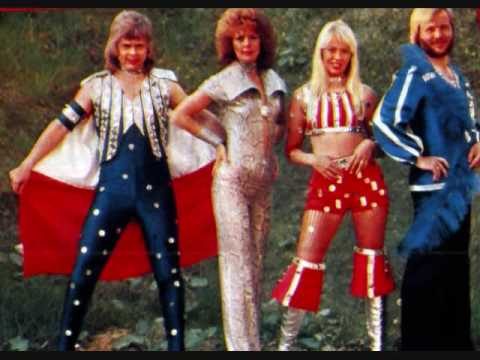The seventh single taken from ABBA’s hugely successful seventh studio album, 1980’s Super Trouper, ‘Lay All Your Love On Me’ wasn’t originally intended to be released but, after a remixed version gained considerable popularity in nightclubs, the song was finally released as a single a year after the album’s first single ‘The Winner Takes It All’.
As with many ABBA releases, the song features an unusual fusion of genres; here we have an electronic take on the disco sound with elements of choral music evident in the chorus.
‘Lay All Your Love On Me’ also has some interesting approaches in the bass part. The propulsive bass playing during the intro is contrasted by the syncopated verse line, which is notable for the fact that Rutger Gunnarsson never plays on beat one. There’s also some harmonic interest here with the use of chord tones and chromatic approaches to outline the D minor and C major chords (the chromatic approach note is a semitone below the 5th of each chord in both cases).
Bass Transcription: ABBA – Lay All Your Love On Me.pdf
The verse bass part sounds like it was double tracked, with the second bass part playing the written line an octave higher – in order to emulate this in a live setting I’d play the written verse part an octave up and use an octave pedal to generate the lower octave.
The verse part also sounds like it was played with a pick, while the rest of the bass on ‘Lay All Your Love On Me’ sounds like it was fingerstyle. There’s the possibility that Rutger Gunnarsson only used a pick when overdubbing the higher octave part in order to give it more ‘bite’, but you can experiment with swapping approaches for different sections of the song.
I remember reading an old Bass Player Magazine interview with Arthur Barrow who revealed that during his tenure in Frank Zappa’s band he used to ‘palm’ a pick (holding it in his hand using the third and fourth fingers) while playing fingerstyle, so that he always had both options at his disposal. This can feel very weird at first but it does give you a wider sonic palette and neatly gets rid of those awkward ‘where did I leave my pick?’ moments on stage.

